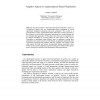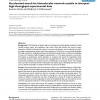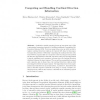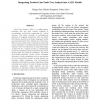381 search results - page 40 / 77 » Modeling Redundancy: Quantitative and Qualitative Models |
MASA
2001
Springer
14 years 1 months ago
2001
Springer
The paper presents a multi-agent system that comprises a society of self-interested agents that use argumentation-based negotiation to reach agreements regarding cooperation and go...
BMCBI
2007
13 years 9 months ago
2007
Background: The functions of human cells are carried out by biomolecular networks, which include proteins, genes, and regulatory sites within DNA that encode and control protein e...
BMCBI
2010
13 years 9 months ago
2010
Background: The evolution of high throughput technologies that measure gene expression levels has created a data base for inferring GRNs (a process also known as reverse engineeri...
EDBT
2004
ACM
14 years 2 months ago
2004
ACM
Qualitative spatial reasoning forms an important part of the commonsense reasoning required for building intelligent Geographical Information Systems (GIS). Previous research has c...
HASE
2007
IEEE
14 years 3 months ago
2007
IEEE
Fault Tree Analysis (FTA) is a safety-analysis technique that has been recently extended to accommodate product-line engineering for critical domains. This paper describes a tool-...




